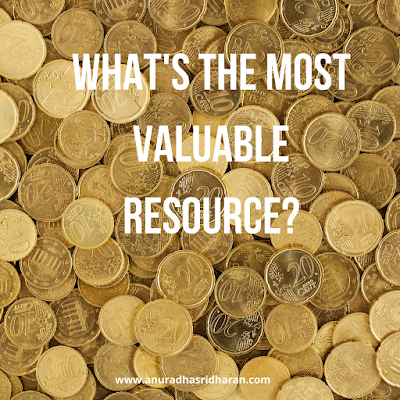In my previous post, we discussed the need to measure our attention span instead of relying on averages concluded by popular media. Do try out the proposed exercise in that post for a week and gather your observations.
In this post, let me share with you 5 strategies by which you can increase your attention span. Tried and tested by yours truly🙂
(1) Avoid multitasking - yes. Stop doing more than one task at once. Going for a walk? Enjoy the walk. Don't try to optimize that time by listening to an audiobook/podcast. When we stop multitasking, we are focused on that single task we are engaged in. This increases our ability to stay mindful for a longer duration.
(2) Avoid frequent context switching - this is an extension to the first strategy, but deserves a separate point, given the amount of information we consume across multiple sources. Reduce the number of people whom you follow on social media. Identify 2-3 topics you are interested in and follow people who share content on these categories. For eg, I have fixed the max number of people whom I follow on Instagram to be 60. The topics I focus on are food/nutrition, Ayurveda and lifestyle that inspires me.
(3) Invest time in activities that put you in a state of FLOW - a state where you are so engaged in an activity that you don't feel the need to reach for distractions. For me, reading, writing, cooking, and public speaking are activities that give me the experience of being in FLOW. I make sure that I invest enough time every week in these activities.
(4) Consciously engage in activities that require more time and focus. A few examples
- Read long-form articles - Do you easily get put off when an article is lengthy? Do you bookmark it for later reference but don't come back to it? If yes, then I'd highly recommend you invest time every week in reading articles that require at least 10 minutes of dedicated time.
- Watch videos at normal speed - This might be a counter-intuitive idea, but hear me out. Many of us like to watch videos at 1.5x speed to grab more information in less time. Some even watch at 2X speed where one could hardly hear the words being spoken, let alone understand the content. Our attention becomes jittery to the point where we might even experience anxiety. By watching at normal speed, we end up seeing fewer videos. We also signal to our mind that the information is important and it requires focus.
- Practice active listening - When someone is having a conversation with you, give your complete attention and listen without interrupting or fidgeting with your phone. I had written a detailed article a few years back on the benefits of listening.
(5) Incorporate "Do Nothing" moments - Our attention gets fragmented when we are busy throughout the day. Consciously taking the time to do nothing, even if it is just for a few minutes in a day is so helpful to realign and focus on fewer priorities. A few minutes of stillness can give us momentum for the rest of the day.
A bonus strategy from the point of distractions - remove apps from your phone that give variable rewards. I had written about this earlier. This strategy converts distraction-inducing smartphones to just another tool we use to get things done.
I hope you found these pointers helpful. As I had mentioned earlier, attention is our MOST VALUABLE asset. Let's protect it with utmost care.

















